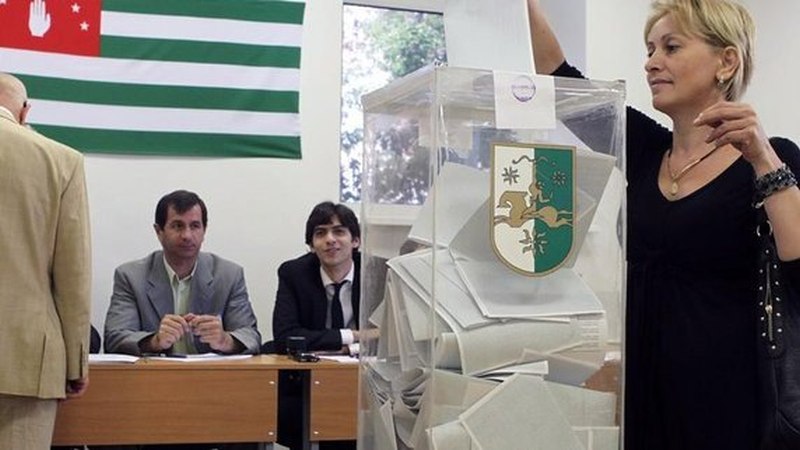2014 Abkhazia Presidential election guide

Taklama -- I have created an overview of the upcoming Presidential election in Abkhazia. Not here, but at Wikipedia, where it can be continuously updated and where others can contribute as well.
Of the candidates that were originally nominated, outgoing Vice Premier Beslan Eshba failed to pass the Abkhaz language test. The four remaining candidates are opposition leaders Raul Khajimba and Leonid Dzapshba, outgoing Head of the State Security Service Aslan Bzhania and outgoing Defence Minister Mirab Kishmaria. Most radically opposed are Khajimba, who lead the protests that brought down President Alexander Ankvab, and Bzhania, who represents the old government and who has called the storming of the Presidential Administration criminal. In light of the diverging opinions regarding Ankvab’s ouster, this may very well become the first Abkhazian Presidential election to require a run-off.
It will be interesting to see to what extent Kishmaria will manage to assume the role of an apolitical candidate representing moderation. At campaign meetings he has stressed ethnic harmony, while as one of Abkhazia’s foremost war-time commanders his patriotic credentials are beyond doubt. Should Kishmaria reach a run-off, this position could hand him a surprising victory.
Dzapshba seems to be the weakest candidate of the four. While Khajimba played a leading role in the protests against Ankvab and has managed to secure most of the opposition’s support, Dzapshba has decided to go it alone. He is also hampered by the fact that while one of the opposition’s major complaints is government corruption, Dzapshba is one of the very few officials of the Bagapsh-Ankvab era to have been dismissed and prosecuted for corruption, even if the process never reached a verdict and may have been politically motivated to begin with. Tellingly, Dzapshba participated in the by-election to Parliament following Eshba’s appointment as Vice Premier, but only managed to finish third. His goal now may be to score a decent percentage and to trade his support in an eventual run-off for an influential position.